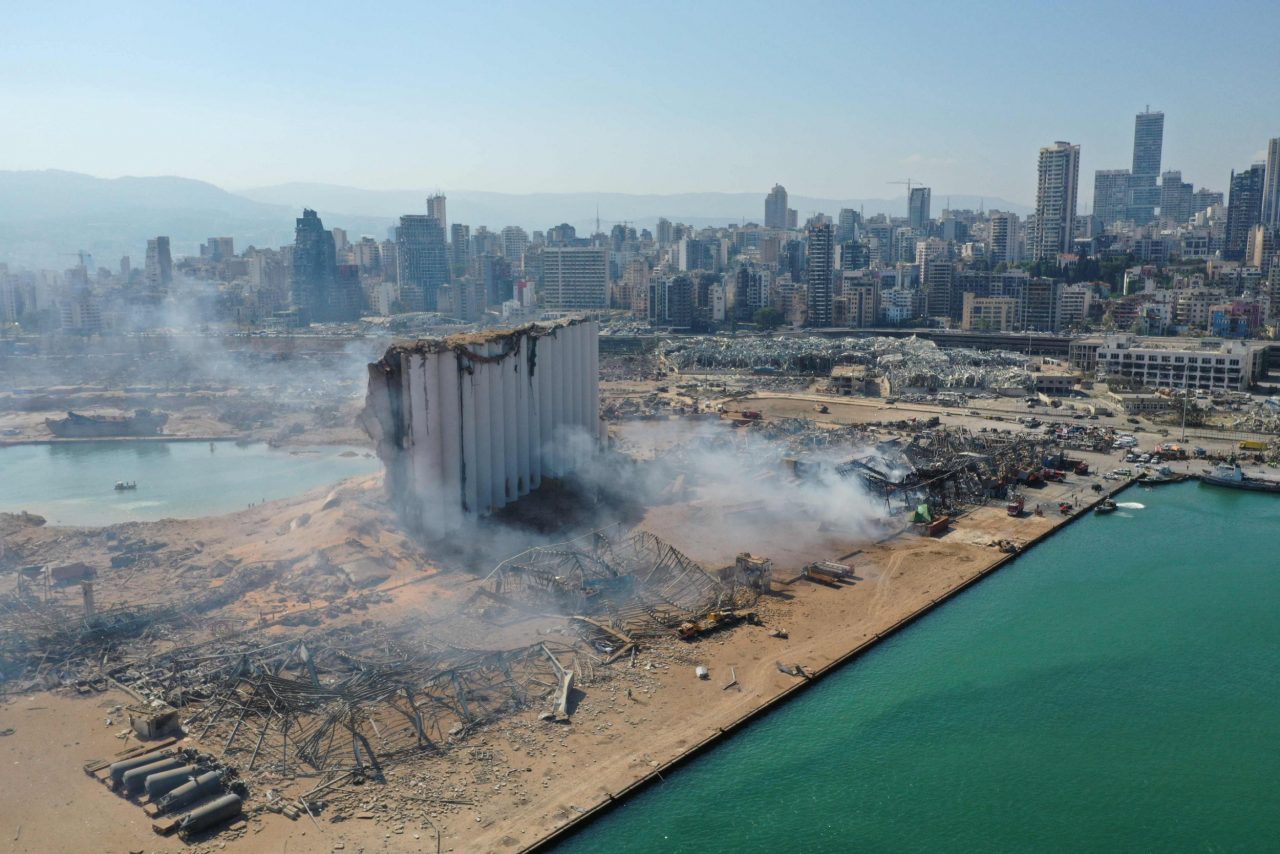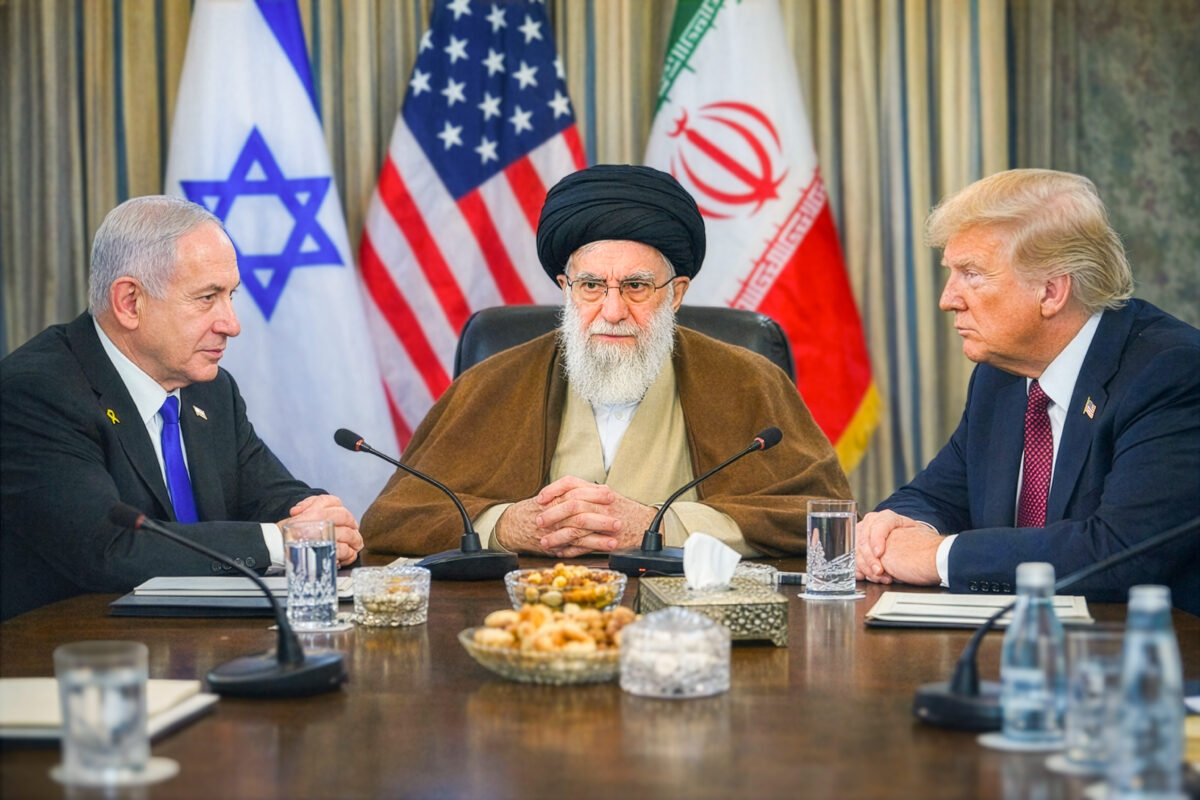Lenaa Itaani grew up in Beirut, Lebanon and witnessed first hand the complex web of factional politics in the country. Like many she was forced abroad as the corruption and economic situation deteriorated. She recently returned to Lebanon and provides an insight into the country’s situation ever since the port blast rocked the nation on 4 August 2020
Ibrahim Hoteit lost his younger brother, Tharwat, in the huge explosion that ripped through the port of Beirut last August. He went around hospitals collecting body parts, starting with Tharwat’s scalp, and buried his remains in a small coffin. On the anniversary of the Beirut Port explosion justice for many remains a distant prospect. On the first anniversary 85 people were injured in clashes between demonstrators and security forces in Beirut’s Martyr’s Square during protests marking the anniversary. The ignition of thousands of tons of ammonium nitrate due to a warehouse fire levelled entire buildings within thousands of feet. The explosion killed 218 people, and caused $15 billion in property damage and has broken the lives of so many.
The Crisis Before the Storm
The Lebanon I returned to is full of so many individual stories of grief, loss and despair for the future. Everyone I met said there were already so many problems in Lebanon before the explosion and the port blast just made those problems far worse. The probe into the cause of the blast has been stalled so many times, despite the entire Lebanese cabinet stepping down, followed by then-Lebanese Prime Minister Hassan Diab. The rumours have turned out to be true, that Diab and President Michel Aoun were briefed on the danger of the explosive materials stored at the port but they did not take any action.
Prior to the explosion in August 2020, there was already an ongoing severe economic crisis. Monetarily, the national currency of Lebanon (LBP) is used alongside the US dollar in trade. In the past, the exchange rate between the currencies was approximately 2,000 LBP to 1 dollar. Just prior to the port explosion the exchange rate rose to 7,000 LBP to 1 dollar. This meant that the average citizen in Lebanon had their purchasing power cut by a third; so the amount of money it cost to feed a family of four now only fed one person.
The rumours have turned out to be true, that Diab and President Michel Aoun were briefed on the danger of the explosive materials stored at the port but they did not take any action
Before this port crisis, life was already difficult, with little supplies, almost no free healthcare or education, and no career prospects. It was already extremely difficult for non-Lebanese nationals (i.e. Palestinians and Syrians) to secure jobs and they tend to have to go through the risk of setting up and running a business to survive. Now imagine an economic crisis where life becomes four times more expensive before a huge explosion that devastates an entire capital city.
The port explosion has completely devastated Lebanon. When the fire started, ambulances full of crews turned up – virtually all of them were killed when the fire resulted in an explosion. Speaking to families with missing port workers, the bodies of their loved ones have never been found – they were most likely instantly turned to ash or vaporised by the blast. Their families have received virtually no help at all, and are still suffering to this day.
Speaking to families with missing port workers, the bodies of their loved ones have never been found – they were most likely instantly turned to ash or vaporised by the blast
The Economics of the Blast
Prior to the explosion the exchange rate was 7,000 LBP to 1 dollar. After the explosion another economic crisis began. The exchange rate reached 25,000 LBP to 1 dollar. This is almost 13 times the rate from just a few years ago. To put this into perspective, the amount of money that was needed to run a family of 13 people (let’s say two grandparents, their two sons/daughters and two spouses, and seven grandchildren) is now only enough to look after one person (one grandchild). Those that lost loved ones to the explosion are now living in poverty and they are receiving no help from the government. It’s estimated that half of Lebanon’s 6.8 million population now live under the poverty line.[1]
It’s estimated that half of Lebanon’s 6.8 million population now live under the poverty line
When the port blast took place, the COVID-19 pandemic was already causing problems. Inflation, poverty, job security were all problems before the explosion and as a result there was and remains a severe lack of medicine in the country, resulting in private hospitals being forced to close. It is hard to estimate the real figures, but due to hospital closures, there most certainly has been more deaths. Especially when the medical knowledge of how to treat COVID-19 was still being gathered.
Even before my visit to Lebanon I saw on a daily basis on social media many people literally begging anyone who was flying into Lebanon to bring medicine into the country for their family members who are sick. Even something as simple and cheap as magnesium (which literally costs pennies) is not available in Lebanon. COVID-19 also really hit the tourism industry hard. Lebanon’s tourism industry contributes 20% of the nation’s GDP and that explains why the government has been trying to use famous Lebanese personalities to promote tourism there. It’s also because many hotels have links to the political class of the country!
No Accountability
No one has been held responsible for the blast a year on. The probe has been constantly stalled due to political considerations. The ammonium nitrate stored at the port is considered to belong to Hezbollah (Iran’s proxy in the region), who were sending it to Syria to Bashar al-Assad’s regime. The head of the workers at the Beirut Port has claimed he did not know what was actually stored in the port he managed. So instead, the blame shifted to one of the security guards, who apparently started the fire (and then thought it would be a good idea to sit around and die in the explosion). It is easy to blame someone who has passed away, they can’t defend themselves and this is why many in Lebanon have continued with their protests against the regime. It is not a coincidence that whenever there are large protests, Hezbollah’s infamous “Black Shirt” members, who are local thugs and gangsters, are deployed by Hezbollah’s leadership to attack those protesting. This is in addition to the army of Lebanon quashing the protests.
With the situation so dire I know of dozens of families who have left the country. The explosion meant that everyone fears for their own safety and the safety of their children. If ammonium nitrate was stored in the capital city, who knows what else is stored across the country.
The departure lounges of the airport are always now full, as people scramble to leave the country by any means necessary – whether claiming visas through family ties or by selling their property just to fund a one-way ticket out of Lebanon. There is an ongoing massive brain drain from the country, and this is just adding to the country’s downward spiral.
To put into perspective how bad things are, many from Palestine are donating to Lebanon! The country which people across the region donate to and call out for, she is donating to Lebanon! There is literally no way to survive in Lebanon today. Unless you have family sending you money from abroad or you are already affluent, you simply will not be able to survive. Even the upper class of Lebanon have been badly hit.
To put into perspective how bad things are, many from Palestine are donating to Lebanon! The country which people across the region donates to and calls out for, she is donating to Lebanon!
I remember Lebanon from my youth, despite its many historical problems as a place where many did look out for each other. But today many simply have no hope as they are merely looking to survive. They cannot see a solution at all – it is so bad that a few people were calling upon Emmanuel Macron of France to manage the country – these people would rather live under colonisers again rather than the Lebanese political class.[2]
Much of the devastated structure still remains standing at the Beirut Port. From the images of the aftermath of the blast, you can see everything is absolutely obliterated, apart from a structure where the blast originated from. This is very peculiar considering something at the source of the blast survived but everything else around it was turned to ash. The structure was originally built to be storage for wheat, built by Sultan Abdul Hamid II in 1887. The structure was made so strong that it held against the entire force of the blast. Moreover, it absorbed the shock of the blast, thereby reducing the radius of damage and saving lives. Unknown to the Sultan, his policies on infrastructure construction actually saved many lives over a century after his rule.

2 More than 50,000 sign petition calling for France to take control of Lebanon | Euronews




